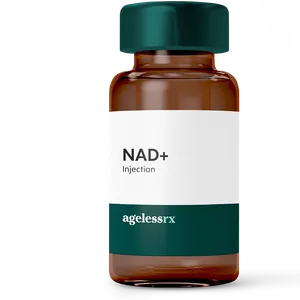
Shake Your Way to Health: The Science Behind Protein Shakes
TABLE OF CONTENTS
- 1 Introduction
- 2 What Are Protein Shakes?
- 3 Types of Protein Powders
- 4 Benefits of Protein Shakes
- 5 When to Consume Protein Shakes
- 6 How to Make a Protein Shake
- 7 Potential Downsides of Protein Shakes
- 8 Conclusion
- 9 FAQs
- 9.1 1. Can I replace all my meals with protein shakes?
- 9.2 2. Are protein shakes safe for everyone?
- 9.3 3. How much protein do I need per day?
- 9.4 4. Should I choose plant-based or whey protein?
- 9.5 5. Can protein shakes help with weight loss?
- 9.6 6. What should I look for in a protein powder?
- 9.7 For more information on related topics, you may refer to the following links:
- 9.8 Related
Introduction
Protein shakes have become a popular supplement among fitness enthusiasts and those looking to improve their overall health. Packed with essential nutrients, protein shakes are a convenient way to meet daily protein requirements, support muscle recovery, and contribute to weight management. This article aims to explore the different types of protein shakes, their benefits, when to consume them, and tips for making the most out of your protein shake experience.
What Are Protein Shakes?
Protein shakes are beverages made from protein powder mixed with water, milk, or a milk alternative. There are various types of protein powders available, including whey, casein, soy, pea, and rice protein. These powders are concentrated sources of protein that provide the body with essential amino acids necessary for muscle repair and growth.
Types of Protein Powders
1. Whey Protein
Whey protein is derived from milk and is one of the most popular protein supplements available. It is a complete protein, meaning it contains all nine essential amino acids. Whey protein is quickly absorbed by the body, making it an excellent choice after workouts for muscle recovery.
2. Casein Protein
Casein protein is also found in milk but is absorbed more slowly than whey. This slow digestion makes casein an ideal choice for a nighttime shake, providing a steady release of amino acids while you sleep.
3. Soy Protein
Soy protein is derived from soybeans and is a great plant-based option. It is also a complete protein and has been shown to help with muscle growth and recovery similar to animal-based proteins.
4. Pea Protein
Pea protein is derived from yellow split peas and is another excellent plant-based option. It is rich in branched-chain amino acids (BCAAs), which are crucial for muscle growth and recovery.
5. Rice Protein
Rice protein, often derived from brown rice, is hypoallergenic and easily digestible, making it a good option for those with dietary restrictions or allergies.
Benefits of Protein Shakes
Incorporating protein shakes into your diet can provide numerous benefits, including:
- Muscle Growth: Protein is essential for muscle repair and growth, making shakes an effective post-workout recovery tool.
- Convenience: Shakes are easy to prepare and can be consumed on-the-go.
- Weight Management: High protein intake can help increase satiety and reduce overall calorie intake.
- Meal Replacement: For those struggling to reach their macro goals, protein shakes can act as a nutritious meal replacement.
- Improved Performance: Adequate protein can enhance athletic performance and recovery.
When to Consume Protein Shakes
Timing can be an essential factor in reaping the benefits of protein shakes. Here are a few key times to consider consuming them:
- Post-Workout: Consuming a protein shake within 30 minutes after a workout can enhance muscle recovery and growth.
- In the Morning: A protein shake can be a great addition to your breakfast, helping to kickstart your metabolism.
- As a Snack: Enjoying a protein shake as a mid-afternoon snack can help maintain energy levels and avoid unhealthy snacking.
- Before Bed: A casein protein shake before bedtime can provide your body with the necessary nutrients for recovery overnight.
How to Make a Protein Shake
Making a protein shake is simple and can be customized to your liking. Here’s a basic recipe:
- Ingredients:
- 1 scoop of protein powder
- 1 cup of milk or a milk alternative
- ½ banana or 1 cup of berries
- 1 tablespoon of nut butter (optional)
- Ice cubes (optional)
- Instructions:
- Add all ingredients to a blender.
- Blend until smooth.
- Pour into a glass and enjoy!
Potential Downsides of Protein Shakes
While protein shakes can be beneficial, there are some potential downsides to be aware of:
- Overconsumption: Relying solely on protein shakes can lead to excessive protein intake, which may strain the kidneys over time.
- Digestive Issues: Some individuals may experience gastrointestinal discomfort from protein powders, particularly if they are lactose intolerant or sensitive to certain ingredients.
- Additives and Sweeteners: Many protein powders contain additives, sweeteners, or fillers that may not be desirable for everyone.
Conclusion
Protein shakes can be a convenient and effective way to enhance your protein intake, support muscle recovery, and contribute to overall health. However, it’s essential to choose the right type of protein powder for your dietary needs, watch your protein intake, and incorporate shakes into a balanced diet. By doing so, you can enjoy the benefits of protein shakes while minimizing potential downsides.
FAQs
1. Can I replace all my meals with protein shakes?
While protein shakes can serve as meal replacements, it’s crucial to maintain a balanced diet that includes whole foods for optimal nutrition. Using shakes as occasional meal replacements can be beneficial, but they should not replace all meals.
2. Are protein shakes safe for everyone?
Generally, protein shakes are safe for most individuals. However, those with specific health conditions, such as kidney disease, should consult a healthcare professional before supplementing with protein shakes.
3. How much protein do I need per day?
The recommended daily protein intake can vary based on age, sex, and activity level. A general guideline is to consume 0.8 grams of protein per kilogram of body weight. Active individuals may require more, between 1.2 to 2.0 grams per kilogram.
4. Should I choose plant-based or whey protein?
Choosing between plant-based and whey protein largely depends on dietary restrictions and personal preferences. Both can be effective; however, whey protein is more quickly absorbed while plant-based proteins may provide additional fiber and phytonutrients.
5. Can protein shakes help with weight loss?
Protein shakes can assist with weight loss as they can help increase satiety, reduce hunger, and support muscle maintenance during a calorie deficit. However, they should be consumed as part of a well-rounded diet and not relied upon solely for weight loss.
6. What should I look for in a protein powder?
When choosing a protein powder, look for high protein content, minimal additives and fillers, and check for third-party testing to ensure product quality. Personal preferences, such as taste and dietary needs, should also be considered.
- USA Domestic Steroids Fast Shipping
- Menagerie Media Blog
- Become a Body Piercer Guide
- Steroid.com
- Hanna Houston Podcast
Protein shakes have become a popular dietary supplement for individuals seeking to enhance their nutritional intake, particularly among athletes, fitness enthusiasts, and those looking to manage their weight. These beverages are generally made by mixing protein powder with water, milk, or milk alternatives, and often include additional ingredients like fruits, vegetables, and seeds to boost flavor and nutritional value. The convenience and versatility of protein shakes make them an appealing choice for busy lifestyles, allowing users to easily incorporate a rich source of protein into their daily regimen.
The primary function of protein shakes is to provide a quick and efficient source of protein, which plays a crucial role in muscle repair and growth, especially following exercise. Consuming protein post-workout can enhance recovery, increase muscle mass, and improve overall athletic performance. The types of protein used in shakes can vary, with popular options including whey, casein, soy, pea, and hemp protein. Each type has unique properties and benefits; for instance, whey protein is rapidly absorbed, making it ideal for post-exercise consumption, while casein digests slowly, providing a sustained release of amino acids over time.
In addition to supporting muscle recovery, protein shakes can aid in weight management. Many people use them as meal replacements or snacks to help curb hunger without consuming excessive calories. High-protein diets can promote satiety, which may lead to reduced overall calorie intake. However, it’s important to balance protein intake with othermacronutrients, and not rely exclusively on shakes for nutrition. Whole foods should remain a cornerstone of any diet to ensure a comprehensive array of vitamins, minerals, and fiber is consumed.
While many individuals benefit from protein shakes, it’s essential to approach their use thoughtfully. Some shakes can be high in sugars, artificial additives, and unhealthy fats, which can undermine health goals. Additionally, excessive protein intake can lead to health issues such as kidney strain or dehydration, particularly for those with pre-existing conditions. It is advisable for individuals to consult healthcare professionals or registered dietitians to determine an appropriate protein intake that aligns with their personal health goals and dietary needs.
In conclusion, protein shakes can serve as a practical and effective tool for enhancing protein intake, improving athletic performance, and supporting weight management. Their popularity reflects a growing awareness of nutrition’s role in health and fitness. However, users should be mindful of the quality and composition of the shakes they choose, ensuring they complement a balanced diet rich in whole foods. By incorporating protein shakes thoughtfully and judiciously, individuals can enjoy their benefits while maintaining a holistic approach to nutrition and wellness.

















